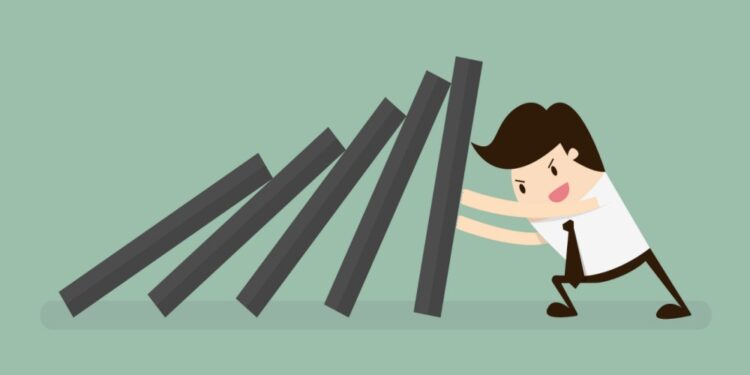Resilience is the ability to recover from adverse life events. Being resilient is a quality that provides us with a solid foundation to keep going. In many difficult situations in life – such as stress and traumas – all we need to do is to be resilient. When we’re resilient, we can cope and open new doors for our growth and learning. Without this quality, we could get stuck thinking we’re victims and never move past our setbacks.
But, no matter how complex the situation, all we need to do is find reasons that we can cling to and help us keep fighting. Resilience is something we all have within us. It’s a natural human response that allows us to overcome setbacks and experience less stress in our lives. But, this quality is often overlooked in our busy lives and the pursuit of success. We all experience life’s ups and downs, and it is through resilience that we can bounce back up from the lowest of lows.
If we’re not resilient and if we give up easily, then life’s setbacks will affect our mood, health, and ultimately, our future. Don’t fret, though, because everyone possesses resilience; you’ll just need to cultivate yours. To do that, you must first become aware of what makes you feel vulnerable. For most, what keeps them down in the dumps is the fear of shame and embarrassment of not being able to succeed.
These feelings are unavoidable, and they’re entirely normal. You’ll just have to learn how to overcome these negative emotions to kickstart your resilient attitude. Remember, it’s always the best time to prove your tenacity and grit when you make a misstep. So, let all your fears and worries go away. Instead, be resilient when things get hard and always move forward. Try again, and eventually, you’ll succeed at what you’re working hard for.
Some of the best resilience quotes are listed below.
- “A few people are born resilient. The rest of us need to work consciously at developing our abilities.” – Al Siebert
- “A good half of the art of living is resilience.” – Alain de Botton
- “All mentally tough individuals are resilient, but not all resilient individuals are mentally tough.” – Peter Clough
- “Definitions have evolved over time, but fundamentally resilience is understood as referring to positive adaptation, or the ability to maintain or regain mental health, despite experiencing adversity.” – Helen Herrman
- “During difficult times, an important resiliency step is being able to express your feelings in healthy ways. You can’t make feelings go away, but you can move through them.” – Al Siebert
- “Having high resilience does not mean it doesn’t sometimes sting.” – Aisha Mirza
- “He’s a million rubber bands in his resilience.” – Alan K. Simpson
- “I can be changed by what happens to me. But I refuse to be reduced by it.” – Maya Angelou
- “I’m not sure if resilience is ever achieved alone. Experience allows us to learn from example. But if we have someone who loves us – I don’t mean who indulges us, but who loves us enough to be on our side, then it’s easier to grow resilience, to grow belief in self, to grow self-esteem. And it’s self-esteem that allows a person to stand up.” – Maya Angelou
- “In terms of fostering resiliency prior to the development of symptoms, current research suggests that certain aspects of military life, such as field training exercises, unit cohesiveness, physical fitness, and leadership may be beneficial as part of preparedness interventions.” – Cale Palmer
- “It is possible to define the property of resilience as a complex repertoire of behavioral tendencies that may be evoked or activated by environmental demands.” – Christine Agaibi
- “It is really wonderful how much resilience there is in human nature. Let any obstructing cause, no matter what, be removed in any way, even by death, and we fly back to first principles of hope and enjoyment.” – Bram Stoker
- “Joy, collected over time, fuels resilience ensuring we’ll have reservoirs of emotional strength when hard things do happen.” – Brené Brown
- “Our resilience increases as we recognize the magnitude of what we have already accomplished.” – Patricia O’Gorman
- “Part of resilience is deciding to make yourself miserable over something that matters, or deciding to make yourself miserable over something that doesn’t matter.” – Elizabeth Edwards
- “Psychological resilience refers to the ability to use personal qualities to withstand pressure.” – David Fletcher
- “Resilience arises out of a belief in one’s own self-efficacy, the ability to deal with change and use of a repertoire of problem-solving skills.” – Brigid Gillespie
- “Resilience can be defined as reduced vulnerability to environmental risk experiences, the overcoming of stress or adversity, or a relatively good outcome despite risk experiences.” – Michael Rutter
- “Resilience can be viewed as a defense mechanism, which enables people to thrive in the face of adversity, and improving resilience may be an important target for treatment and prophylaxis.” – Dmitry Davydov
- “Resilience can go an awful long way.” – Eddie the Eagle
- “Resilience can refer to positive adjustment in the face of adversity. Resilience has also been defined as the capacity of individuals to cope successfully with significant change, adversity or risk.” – Hyun Lee
- “Resilience embodies the personal qualities that enable one to thrive in the face of adversity.” – Kathryn Connor
- “Resilience has been described as the capacity for positive outcomes despite challenging or threatening circumstances.” – Byron Egeland
- “Resilience is a dynamic concept in which successful coping may involve a complicated mixture of psychological habituation, changes in the mental set, alterations in perceived and actual self-efficacy, hormonal changes, and neural alterations.” – Michael Rutter
- “Resilience is a multidimensional and not a unitary concept. There is no one characteristic or trait identified as resilience. Rather, there are many behaviors and actions associated with resilience.” – Russ Newman
- “Resilience is a process and a staircase. You might be on step four of the staircase, and I might be on step one, but we can both keep moving up the staircase so that our resilience levels will hopefully exceed the rising tide of stress.” – Glenn Schiraldi
- “Resilience is accepting your new reality, even if it’s less good than the one you had before. You can fight it, you can do nothing but scream about what you’ve lost, or you can accept that and try to put together something that’s good.” – Elizabeth Edwards
- “Resilience is all about being able to overcome the unexpected. Sustainability is about survival. The goal of resilience is to thrive.” – Jamais Cascio
- “Resilience is an inference based on evidence that some individuals have a better outcome than others who have experienced a comparable level of adversity.” – Michael Rutter
- “Resilience is based on compassion for ourselves as well as compassion for others.” – Sharon Salzberg
- “Resilience is believed to be a process rather than a single event and a continuum rather than a binary outcome.” – Meetu Khosla
- “Resilience is born by grounding yourself in your own loveliness, hitting notes you thought were way out of your range.” – Gregory Boyle
- “Resilience is distinct from mere survival and more than mere endurance. Resilience is often endurance with direction.” – Eric Greitens
- “Resilience is experienced as a global process relating to psychological, social and behavioral qualities involving genetic, developmental and neurochemical mechanisms.” – Meetu Khosla
- “Resilience is fundamentally underpinned by the concept that it is not so much the hard times we face that determine our success or failure as the way in which we respond to those hard times.” – Rachel Jackson
- “Resilience is knowing that you are the only one that has the power and the responsibility to pick yourself up.” – Mary Holloway
- “Resilience is not about being able to bounce back like nothing has happened. Resilience is your consistent resistance to give up.” – Janna Cachola
- “Resilience is our ability to bounce back from life’s challenges and unforeseen difficulties, providing mental protection from emotional and mental disorders.” – Michael Rutter
- “Resilience is overcoming adversity, whilst also potentially changing, or even dramatically transforming, aspects of that adversity.” – Angie Hart
- “Resilience is seen as more than simple recovery from insult; rather, it can be defined as positive growth or adaptation following periods of homeostatic disruption.” – Laura Campbell-Sills
- “Resilience is the ability to attack while running away.” – Wes Fessler
- “Resilience is very different than being numb. Resilience means you experience, you feel, you fail, you hurt. You fall. But, you keep going.” – Yasmin Mogahed
- “Resilience is, of course, necessary for a warrior. But a lack of empathy isn’t.” – Phil Klay
- “Resilience isn’t a single skill. It’s a variety of skills and coping mechanisms. To bounce back from bumps in the road as well as failures, you should focus on emphasizing the positive.” – Jean Chatzky
- “Resilience needs to be judged, not in terms of superior overall functioning as judged in relation to the population as a whole, but rather in terms of functioning that is relatively better than that shown by others experiencing the same level of adversity.” – Michael Rutter
- “Resilience or hardiness is the ability to adapt to new circumstances when life presents the unpredictable.” – Salvatore R. Maddi
- “Resilience represents a constellation of characteristics that protect individuals from the potential negative effect of stressors.” – Ivan Robertson
- “Resilience results from having the encounter at a time, and in a way, that the body can cope successfully with the noxious challenge to its system.” – Michael Rutter
- “Resilience to the unsettling effects of interpersonal loss is not rare but relatively common, does not appear to indicate pathology but rather a healthy adjustment, and does not lead to delayed grief reactions.” – George Bonanno
- “Resilience: the art of caring for the right things.” – Maxime Lagacé
- “Resiliency is something you do, more than something you have. You become highly resilient by continuously learning your best way of being yourself in your circumstance.” – Al Siebert
- “Resiliency is the ability to spring back from and successfully adapt to adversity.” – Nan Henderson
- “The behavioral component of resilience enables people to remain effective at home and work, able to focus on relevant tasks and goals and carry them out.” – Cary Cooper
- “The concept of mental resilience is crucial to our understanding of how risks may be modified and disorders prevented.” – Dmitry Davydov
- “The conclusion that resilience is made of ordinary rather than extraordinary processes offer a more positive outlook on human development and adaptation, as well as direction for policy and practice aimed at enhancing the development of children at risk for problems and psychopathology.” – Ann Masten
- “The study of resilience represents a special subclass of research on positive functioning as it applies to risk populations under adversity. One limitation of resilience research is the neglect of a large range of positive functioning beyond the absence of problems.” – Joseph Mahoney
- “There’s no such thing as ruining your life. Life’s a pretty resilient thing; it turns out.” – Sophie Kinsella
- “We need resilience and hope and a spirit that can carry us through the doubt and fear. We need to believe that we can effect change if we want to live and love with our whole hearts.” – Brené Brown
- “When we learn how to become resilient, we learn how to embrace the beautifully broad spectrum of the human experience.” – Jaeda Dewalt
- “You learn to be resilient, to survive when you know you are capable of making a worthy contribution to the world – you fight it when you have nothing to lose and so much to gain.” – Mala Naidoo


































































































































































































